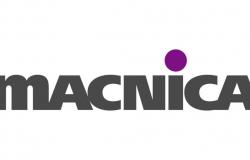Britons will no longer see adverts for foods that are too fatty, too sweet or too salty on television before 9 p.m. A ban that will be total, online. The British government has unveiled the list of products banned from advertising as part of a policy to combat childhood obesity.
This concerns scones, croissants, pain au chocolat, pancakes, waffles and even muffins. The restrictions apply to sugary breakfast cereals, including some granola, muesli and porridge with added sugar and salt. Cookies and cereal bars are also affected.
The ban also targets carbonated or energy drinks, but also certain fruit juices and smoothies with added sugars.
Also on the list: hamburgers, frozen chicken nuggets etc.
The government estimates that the measure will prevent 20,000 cases of childhood obesity per year. According to the NHS, the public health service, childhood obesity is increasing in the country, with almost one in 10 four-year-olds considered obese. At age five, nearly one in five children suffer from tooth decay due to excessive sugar consumption.
Towards a ban on energy drinks for under-16s
This anti-junk food measure, announced in September, must come into force on October 1, 2025. All foods concerned are considered “less healthy” in a government rating system based on salt, fat, sugar and protein content.
Advertising may continue for healthier versions of these foods. Natural yogurts, for example, are not affected by the measure, unlike those that are sweet or fruity.
“Studies establish clear link between food advertising and calorie consumption“, noted an analysis put forward by the government.
“Obesity robs our children of the best possible start in life, puts them at risk of lifelong health problems and costs the NHS billions” said Minister of Health Wes Streeting.
The Labor government plans other measures aimed at strengthening health prevention, such as banning energy drinks for under-16s.
Health






